Description
Postural Rehabilitation is the new go-to in wellness for horses, helping equine professionals help individual horses towards improved health and athletic performance by achieving a neutral rather than compensatory posture.
Taught by highly skilled research and practising veterinarians, this training program offers an integrative, evidence-based approach to alleviating chronic performance issues and preventing musculoskeletal injury.
Most back and neck pain in horses is caused by compensatory postures that put strain upon the spinal support system. Horses do this to maintain an upright position when they’re experiencing impaired reflexes of standing and balance.
Through this taught approach of Postural Rehabilitation, normal reflexes of standing and gaiting are restored, correcting neural signals that inform the brain about the horse’s balance. Consquently, tendons, ligaments and muscles are prevented from being strained beyond their normal safety margins.
Register for the PR Professionals webinar
Or from 5 Jan 2025, go straight to the sign-up page: Sign-up
(Once the program is full, you will be placed on the wait list for the next course.)
Why You Should Consider Postural Rehabilitation Training
As an equine care or training professional, you know there must be a better way to manage and prevent equine performance issues.
Now, in this unique learning experience, the postural rehabilitation team will guide you through the ways to improve the lives of horses in your care and managment sphere.
This will enable you to achieve improvements faster, avoiding problems that recur over and over again. At last, you’ll be able to avoid the issues that debilitate horses and keep you up at night, trying to find solutions.
What You’ll Learn Through Postural Rehabilitation Training
This program offers you the ability to make sense of so much areas that you are new to you, or that you already fully or partially understand.
Reliable, repeatable pathways to solving ‘mystery lamenesses’. Lameness doesn’t drop from the sky – there’s always a reason that soft and hard tissues fail. Now you can learn the tools that will enable you to become an expert in injury forensics.
A deeper connection with the horses you’re responsible for. There’s nothing mystical here – quite simply, when you are posturally stable, all communication with horses (and their people) becomes so much easier and so much more effective.
The ability to reliable recognize structural distortions in equine feet and teeth. You’ll be able to differentiate between common and normal feet and teeth, understanding why this matters, and what can be done about it.
The creation of ‘big picture’ solutions using Complexity Theory. Learn to make positive changes by taking advantage of points of maximum influence, just as the vets teaching the course do.
An understanding of why cervical spinal function links everything. The neck is a narrow causeway through which all neural signals must travel. Learn why movement restrictions at the poll or the cervicothoracic junction lead to systemic problems.
Benefit from becoming a member of a superb professional team. The course community constitute an ideal equine care team, offering a network of support to aid in your professional practice.
See Horses Through The Lens of Postural Rehabilitation
With this training, you can connect the dots across all your hard-earned equine knowledge.
This course provides a solid foundation that will improve your relationships with your patients, your clients and your work.
Hopefully, it will even put you on the path to improving your own postural integration, so that you can continue to work more effortlessly and more effectively for longer.
A longer career of helping horses at the deepest possible level – what could be better?
Course Duration and Tuition fees
The program lasts 8 weeks from Jan 19 to Mar 15, 2025. Each week, you will receive lectures to watch on demand, plus live sessions with Dr. Shoemaker and Dr. Gellman to discuss the practical applications of the taught concepts.
Best of all, each week starts with a 75 minute Alexander Technique workshop, led by Elizabeth Reese, master teacher of this essential movement and body awareness modality. This helps to explore the weekly concepts as they apply to our own bodies.
There will also be a live Q & A session at the end of each week to clarify concepts and make sure you are ready to move on. Postural Rehab participants will be part of a private PR Facebook group, where we can connect with colleagues and share our knowledge.
Your investment to join the Professional stream of the Postural Rehabilitation Training Program is US $3195.
Professional Practitioners Give Their Reviews
“Absolutely would recommend this to any current practitioner who is looking to enhance their current modalities, provide lasting change to their clients, and help facilitate true balance within the horse’s body.” – Hannah Taylor. Equine Osteopath, ON
“I feel this course should be required in veterinary school curriculum!” – Dr. Janet Gordon Palm, Holistic Veterinarian, CO
“I think what really sets this course apart from other courses is the emphasis that is put on addressing the practitioner’s body and becoming more in tune with ourselves and our own proprioception before we begin working on a horse and translating our personal imbalances into the animal.” – Tara Schultz, Vital Equine Solutions, MN
“Postural Rehabilitation is one of the best trainings I have done in my thousands of hours of learning!” – Dr. Sandra Harvey, Stable Wellness, PA
“If you don’t know about Postural Rehabilitation… you are missing out! The FOMO should be real – these classes changed my life! And just when I think I’m finally getting smart about posture, Karen tells me something that just blows me away!! And I love it! I can return and return to my notes from my Postural Rehab class and I always come across something new, or an answer to something that everyone is pondering.” – Dr. Rachel Heart Bellini, Heart Equine, TX
“I am very excited to return to the AT Workshop video sessions with Liz so that I can increase my own awareness and the application to my practice. There were a ton of “ah-ha” moments that I have been playing with.” – Lyndsey Moore, Equine Osteopath, AB
“By far the best course I have done in my 30 plus years working with horses!” – Dr. Steve Katz, Equine Chiropractor, MA
“My favorite part was how well Liz, Dr. Karen and Dr. Judith tied it all together, from being able to feel it, then the science behind it, then practical application on the horses. I also really appreciated the welcoming vibe, the space felt safe for learning and exploring questions and ideas.” – Dr. Amber Langmeier, All Chiropractic, MD
“I have used this information every day in my practice and I tell people it is one of the most valuable tools I have ever learned to bring and keep horses and dogs to soundness.” – Dr. Alisa Sneade-Koenig, The Veterinary Alternative, NY
“I loved all the content and everything about it. I just want more!!” – Mylissa Davis, Masterson Method Body Worker, VT
“I enjoyed the entire course, but being able to watch the theory lectures on my own time was super helpful. I like to pause, repeat and go over concepts until they click. Then follow up with the practical sessions and the Q & A sessions gave me the repetition that I needed to really help the concepts sink in.” – Dr. Kelli Taylor, The Veterinary Alternative, WA
The Vets Who’ll Be Teaching You
Judith M. Shoemaker DVM. Judith is an internationally renowned practitioner and educator in integrative veterinary medicine. Licensed to practice in the US in over 14 states, she was awarded AHVMA Practitioner of the Year in 2012. Her equine and companion animal veterinary practice focuses on complementary medicine and holistic therapies, integrating chiropractic, acupuncture, and other modalities for treating elite athletes in canine and equine competition, as well as service animals and companion animals.
Elizabeth Reese AmSAT, M.Ed, LMHC. Liz is a certified Teacher of the Alexander Technique, a dressage rider and instructor, and mental health counselor, working with both humans and horses to explore the relationship of postural stability to emotional resilience. Her work with both humans and horses suffering from trauma inspired her to study the relationship of postural stability to emotional resilience, earning a master’s degree in Mental Health Counseling, specializing in working with clients recovering from trauma, grief and loss.
Karen Gellman DVM, PhD. Karen is a graduate of Cornell College of Veterinary Medicine, and has a doctorate from Cornell in animal locomotion biomechanics. She has advanced training and certification in veterinary acupuncture and veterinary chiropractic and has practiced these and other holistic modalities since 1995. She teaches internationally about posture, locomotion biomechanics, equine dentistry and veterinary complementary therapies to veterinary professionals and allied professions.
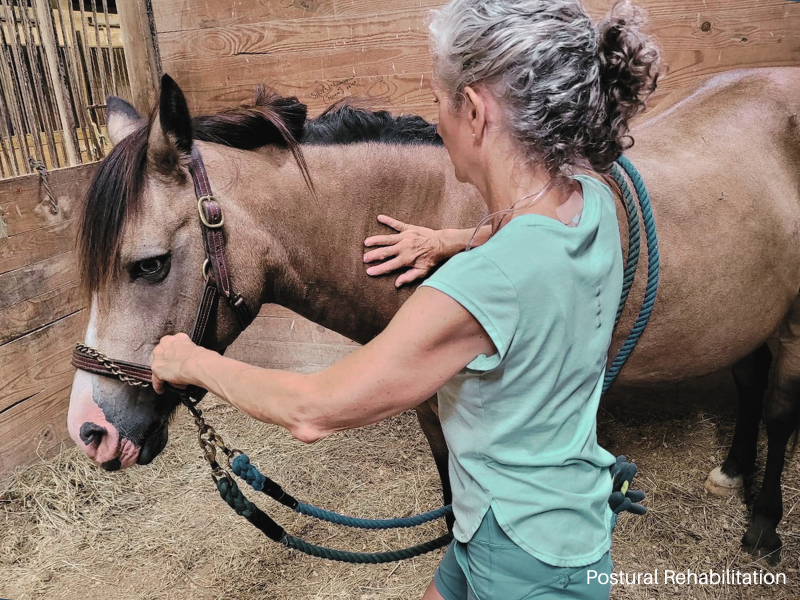
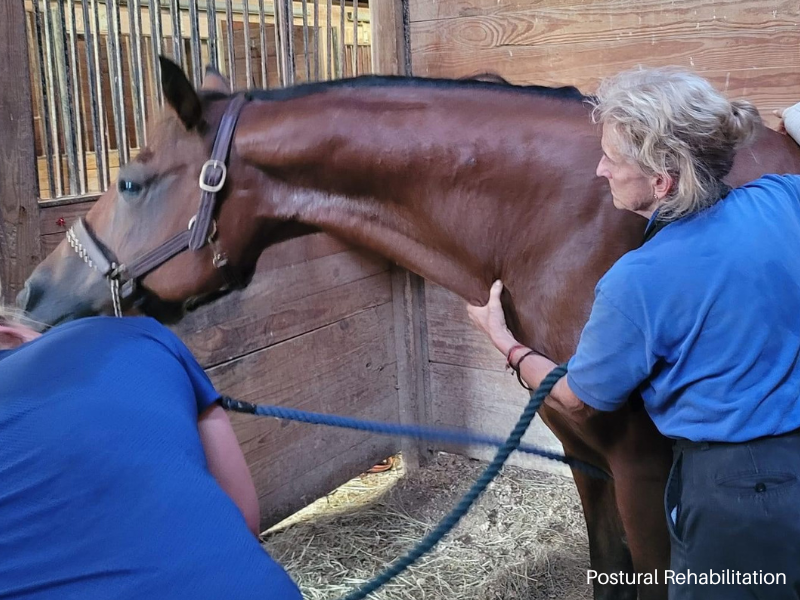
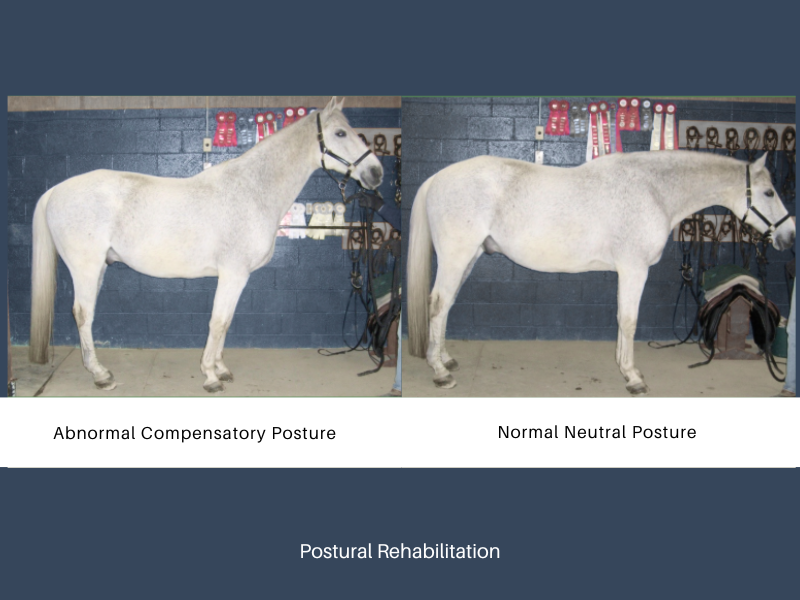
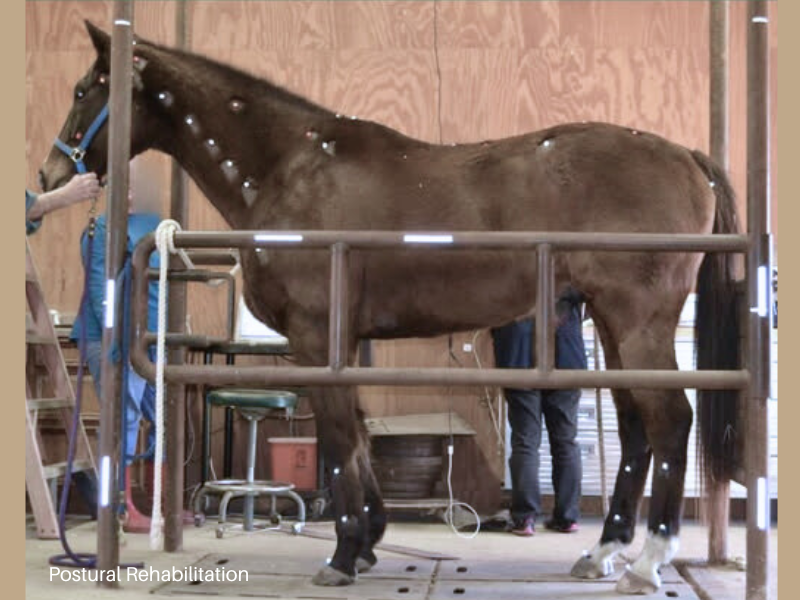
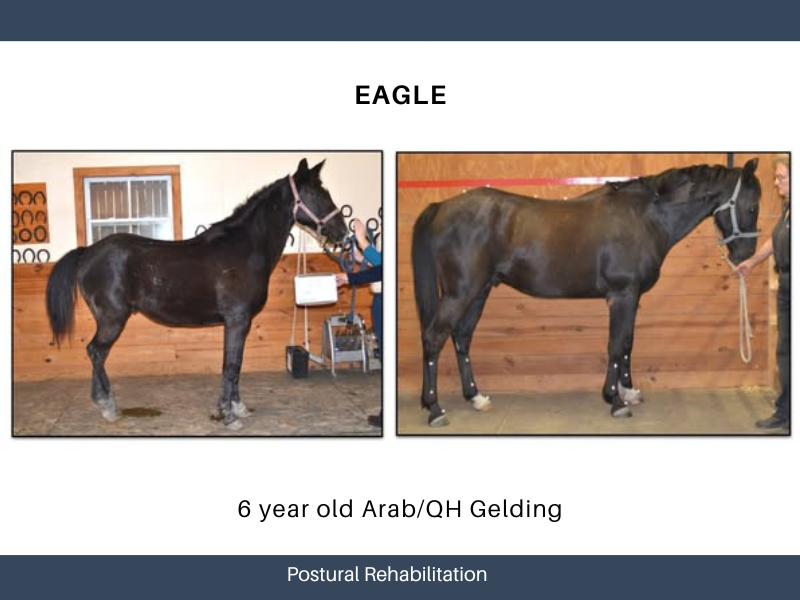
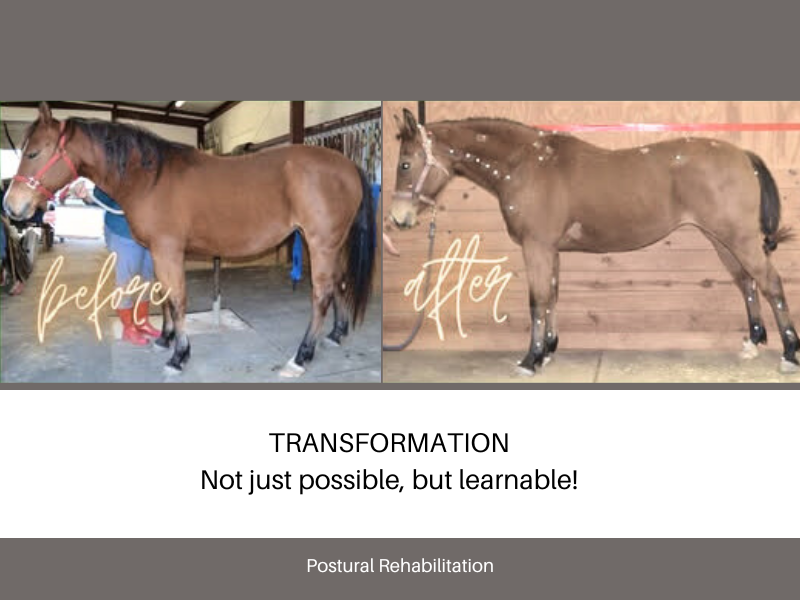
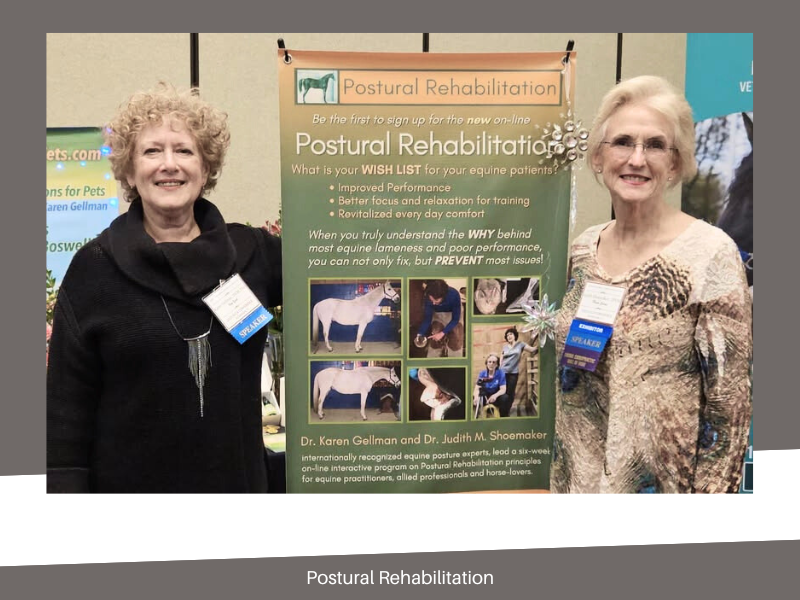
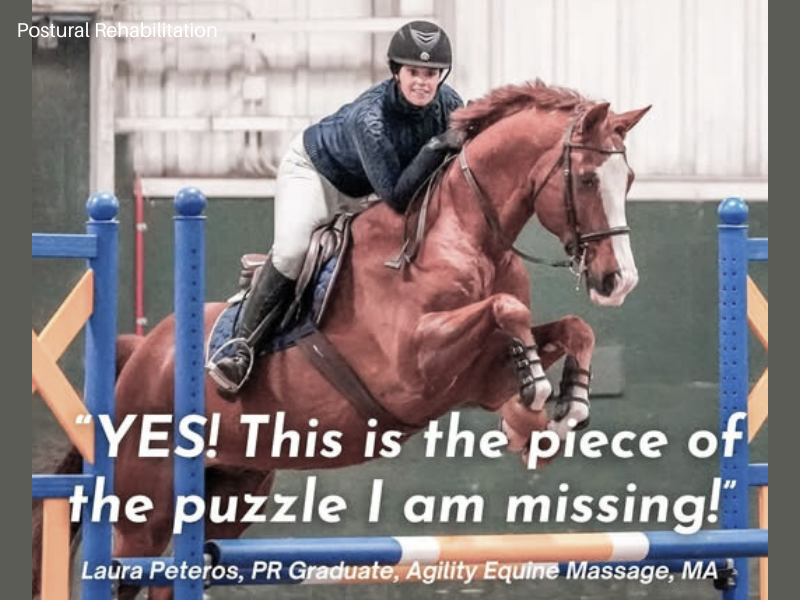
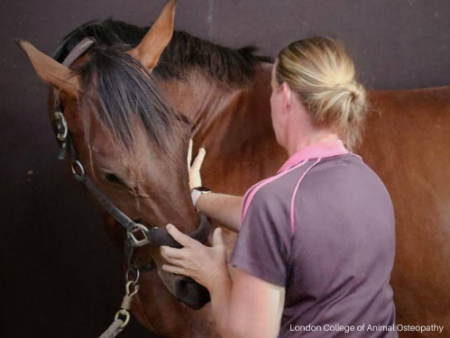
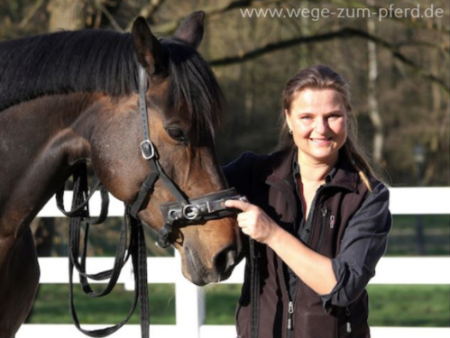
Reviews
There are no reviews yet.